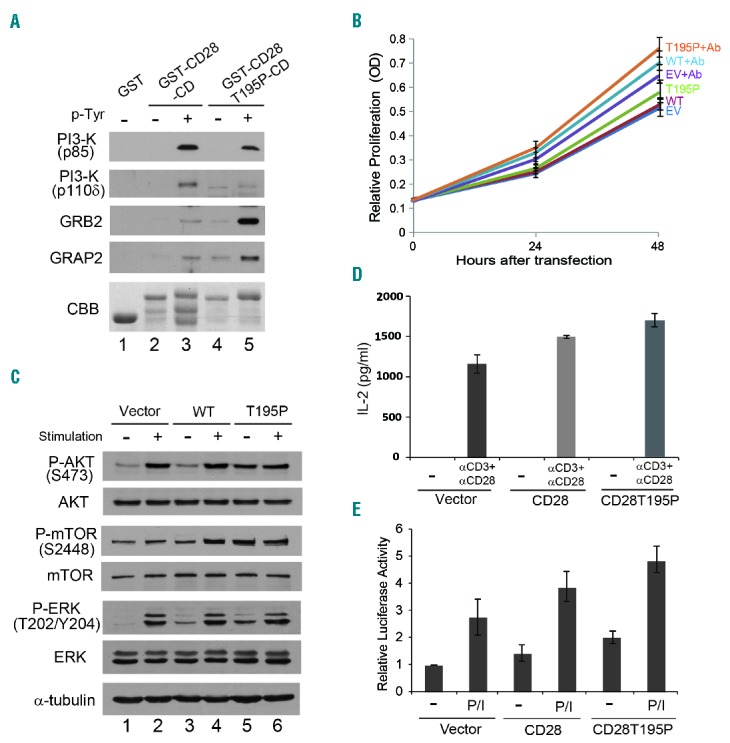Figure 2.

Effect of the T195P mutation on CD28 activity. (A) GST beads containing GST, GST-CD28-CD (cytoplasmic domain), and GST-CD28 T195P-CD were incubated with Jurkat cell lysate. For tyrosine phosphorylation of CD28 cytoplasmic domain, GST-fusion proteins were expressed in E. coli strain expressing tyrosine kinase. Bound proteins were retrieved and examined by immunoblotting with anti-PI3-K (p85/p110δ), anti-GRB2 and anti-GRAP2 antibodies. GST, GST-CD28-CD, and GST-CD28-T195P-CD on immunoblots were stained with Coomassie Brilliant Blue (CBB). (B) Jurkat cells expressing CD28 T195P mutant enhances cell proliferation (P<0.001 compared with cells expressing wild-type CD28) with or without co-stimulation by anti-CD3/CD28 beads. Each condition with 5 replicates was repeated three times, and data are expressed as mean ± standard deviation. OD: optical density; EV: empty vertor. (C) Expression of CD28 T195P enhanced phosphorylation of AKT, mTOR, and ERK without stimulation. (D) Expression of CD28 T195P mutant enhances interleukin 2 (IL-2) production after co-stimulation with anti-CD3/CD28 beads (P<0.001 compared with cells expressing wild-type CD28). IL-2 production was measured three times, and data are expressed as mean ± standard deviation. (E) Expression of CD28 T195P mutant activates NF-κB pathway with or without PMA/ionomycin (P/I) stimulation (P<0.001 compared with cells expressing wild-type CD28). Luciferase activity was measured three times, and data are expressed as mean ± standard deviation.
